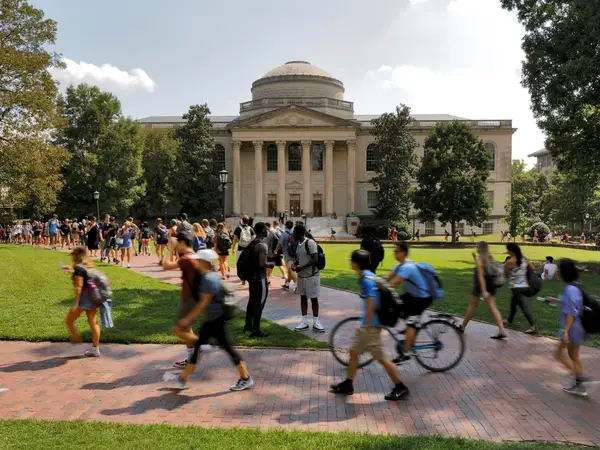Iranian graduates seeking higher education in the US are facing significant delays in obtaining visas, even with letters of admission from top universities.
Iran International has spoken to some students who have been waiting for much longer than the 6-month limit, after which a prospective student can pursue legal action under current advice of the State Department.
The delays are attributed to increased security scrutiny for visa applications from citizens of nations categorized as supporters of terrorism, including Iran.
Immigration attorney David Gluckman, who is familiar with such cases, says the long delays in student visa decisions almost “exclusively” affects Iranians.
“There are some other nationalities that I deal with in these types of cases. But in terms of student visa cases, it’s almost all Iranians,” Gluckman says, noting how things have gotten worse in recent years, under both Presidents Donald Trump and Joe Biden.
“Agencies are required to pass on or to make decisions on matters that are before them within a reasonable time,” Gluckman explains, “so if… it’s taking an unreasonable length of time, you can sue them under the Administrative Procedure Act. In the past, it had been a little bit more manageable… but it’s just gotten worse and worse and I’ve had to file more and more lawsuits. And just within the last several months… even lawsuits haven’t been as effective as they used to be.”
The State Department denies that Iranian students are treated differently because they are from Iran.
“Every Visa Decision is a national security decision, and every prospective traveler to the United States undergoes extensive security screening,” a spokesperson for the State Department wrote to Iran International. “Students from Iran are one of the top 25 places of origin for international students studying in the United States, and we welcome Iranian students.”
Currently, around 11,000 Iranian students study in American universities, according to the Institute of International Education, which tracks international students in the United States.
There’s no data on the success rate of applications for student visas among Iranians, but one Telegram group created by and for students sharing their ‘visa experience’ has almost 700 members, most of whom are still waiting for a decision.
The overarching feeling among prospective students is that an entry clearance (a visa) is the tallest hurdle, much taller than shining grades that would get them admitted to a respectable university in America.
Students affected by the delay speak of a sense of despair, especially since –to them at least– it all looks so random, impossible to plan for, unlike the application, even the admission, for which they plan and endeavor for many years.
“Outside the embassy, everyone was talking about an officer who rejected everyone, but I ended up with another officer who was nice,” says one prospective student, who despite his apparent luck has been waiting for three months for an answer.
Another student says, “I asked the officer how long I’d have to wait for the visa? They told me, don’t worry, you will have it, just wait for our email. I never received any emails after that.”
The impact of these delays is felt not only by the students but also by the institutions that seek international talent to advance their research.
“We basically hire students to come and work on our research projects,” says Prof. Amir Aghakouchk from the civil engineering department at UC Irvine. “The Number of PhD applicants has gone down… because there are a lot of job opportunities. That’s why bringing talent from outside the US is sometimes absolutely necessary.”
Some institutions and many scholars in the US–especially those of Iranian origin– are voicing their concern about the delays. They maintain that academic environments are best kept free from political tensions.
But not everyone agrees with that statement.
Kaveh Madani, an academic and director of the UN think tank on water, believes universities are “political” across the world. “Every country has the right to ensure that the people they allow in are not a security risk,” he says, “but the existing procedures are not effective. Individuals associated with the regime… go through the filter and innocent people who have nothing to do with politics face such problems.”
This is a sentiment echoed by many of those waiting to be ‘cleared’ to pursue their dream in American universities.
“We are not political, and we are not trying to escape the situation in our country,” says one female student who has had PhD offers from three universities in the US, still waiting for a response from the embassy. “I hope we get the answer and don’t get mixed up with everything else.”






















